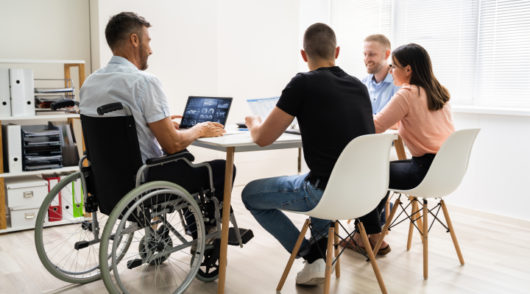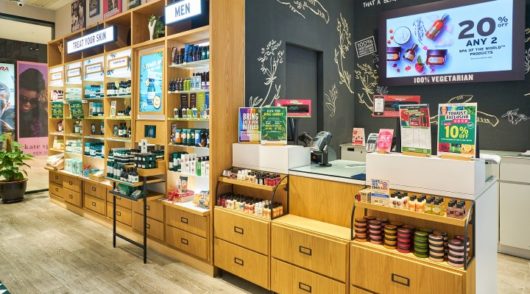 With over 30 years of retailing experience and a knack for picking the hottest trends in discretionary spending, this week’s featured executive certainly knows how to put the shoe on the right foot.
With over 30 years of retailing experience and a knack for picking the hottest trends in discretionary spending, this week’s featured executive certainly knows how to put the shoe on the right foot.
Daniel Agostinelli began his career at 16, working in a music store. From there he went on to buy his own music store in Sydney with business partner and well known retail executive Brett Blundy, the chairman of BB Retail Capital.
From the Agostinelli household’s rumpus room, the Sanity Music retail chain was conceived and built. Agostinelli sold out of the business after a public listing on the stock exchange in 1997.
At 29 years old, he went to London looking for something new, noticing the trend setters wearing “trainers” and brought the concept back to Australia. Agostinelli bought a broken business of five stores named “Ghetto Shoes”, re-branded them and grew the business from five stores to 42 in two years before selling the business.
In 2006, Accent Group (a wholesale supplier to Ghetto Shoes) aspired to get into the retail space and sought out Daniel to be an equity partner. From there, Accent bought eight retail stores (Platypus) and again, he re-branded and grew the business.
Today the Accent group boasts over 430 stores. The business merged with RCG Group in May 2015 and in March 2016 purchased Hype DC. Agostinelli is now the Group CEO of Accent Group Limited, which has 10 retail divisions, 10 wholesale divisions and 430 stores under eight banners. They are a publicly listed company (AX1) with sales approaching $800 million and a market cap of $700 million with aspirations to enter the Asian market in 2018.
Accent’s brands include The Athlete’s Foot, Hype DC, Platypus Shoes, Podium Sports, Skechers, Merrell, CAT, Vans, Dr. Martens, Saucony, Timberland, Sperry Top-Sider, Palladium, and Stance.
Inside Retail Weekly: How has business been over the last 12 months?
Daniel Agostinelli: Steady as she goes are the words we’ve been using, though obviously we would like more. Overall we’d have to put it in the satisfactory box.
In late December, we noticed that the whole marketplace was on this mad drag for comp growth and the only way you do that is by offering super discounts. We decided to go against that trend. It’s come at a cost of comp growth but certainly allowed us to maintain integrity with our brands and products. It’s been well-received by the team.
So suddenly we are back to actually being real retailers and not doing this lazy retailing [discounting] as I’ve been quoted talking about in the papers lately.
IRW: Are trading conditions really much tougher than other decades?
DA: It’s definitely tougher than it’s been and there’s more competition around. The online aspect is certainly digging into us and in our world, we have the new entrants coming in to contend with like Amazon and JD Sports.
But what we’ve really noticed, is that if you don’t stand for something as a retailer – which you use to be able to get away with by simply just putting some product in a store – it’s no longer enough.
So if you’re going to keep the trade up to where it needs to be, you need to be investing in stores and keep the momentum going by retailing from a dynamic environment. Technology must definitely play a part in what you’re doing or you’ll get left behind.
IRW: You mention online – what’s been the impact of e-commerce on the industry and what is Accent’s digital approach?
DA: We simply see it as just another big store, which is just part of our greater business. It’s an extension of what we already do. Consumers and our customers don’t care how they get the product. Our job is to deliver it to them in whatever manner they prefer.
That is real customer satisfaction and that’s what we’ve embarked on. With the impending arrival of the big online retailers like Amazon, we were forced to review what we did and so we setup what we call a digital hub. It’s a separate business, with its own P&L and building.
Our digital hub, which is run by Mark Teperson, who’s job is to simply control anything to do with digital for the group whether it’s a sale or marketing ploy – anything digital goes through that building.
It’s been game changing for us, towards allowing us to maintain our share of whatever is happening online and indeed growing it. We reported 170 per cent growth up to December 30 last year and it’s continuously growing. We’d like to see 15 per cent of our total group sales come out of online. We are certainly not there yet but are in front of where we’d planned to be at at this stage.
IRW: Can you tell us about your relationship with wholesalers and retailers?
DA: We don’t really give our stores any major preference. We simply buy from the same range we offer the market. Yes there are some exclusive lines that we like to see go through our stores. But at the same time we offer the market exclusive lines, purely in a ploy to ensure that there’s real differentiation in the market.
It doesn’t mean that one shoe’s better than the other one, it just means that we’re doing our best to differentiate. If you go into a Hype store, you will potentially find 6-10 shoes from the Vans business that you won’t find in Platypus and vice versa.
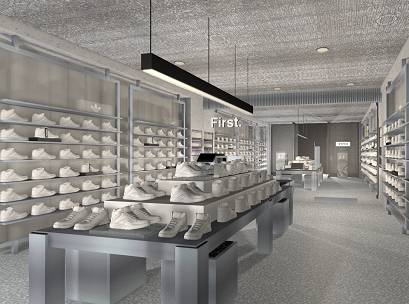
IRW: What do you make of the emergence of sneaker culture?
DA: We view the sneaker culture as being that very top end, where shoes retail somewhere from $500 up. We don’t really play in that space. We play in the more affordable mid-market trainers, that come from brands like Adidas, Nike, Vans and Dr. Martens. We’re seeing continuous growth in this area worldwide, purely because we all like to wear comfortable shoes that look fashionable. Unfortunately it’s coming at the price of anyone selling traditional brown leather shoes. If you take a walk in any airport in any city around the world you’ll see people wearing comfortable, light shoes that look fashionable. We believe this to be a shift in trend and has been for some years now and don’t see it going back the other way in the foreseeable future.
IRW: What are other footwear trends that you’re seeing at the moment?
DA: Dr. Martens is a major new trend coming through. This rock and roll, rebellious looking shoe, is very strong within inner cities and starting to happen in suburbs and thankfully we are the distributors of that brand.
The other major shift is to what we call slip-ons. That category has traditionally always been owned by Vans, which we also distribute so we have a little bit of wind behind us in terms of what those trends are doing.
But all over the world, slip-ons are trending big time and we feel that in the next six months we’ll start to see a major shift back towards the category again. This hasn’t trended for probably five years now so it’s a good time for it to come back. The other one trending in big way is anything chunky. Everyone’s calling that the ugly daddy trainer and it’s trending big time with all brands. Once again Skechers have got one called D’lites and that promises also to be super strong.
IRW: You mentioned Dr. Martens, how have consumers responded to that initial store at Pitt Street in Sydney?
DA: Very positive. It’s only a small store, around 60 square metres and certainly blown us away by the sales coming out of it. But more importantly the presence of having a store actually strengthens what the brand is, particularly in the city of Sydney.
We are looking for at least two more stores in very quick succession to open before December 1 this year.
IRW: What it’s been like learning alongside people like Brett Blundy?
DA: Brett Blundy is Australia’s best retailer hands down and understands that persistence wins. He is interested in growth and doesn’t look at share prices day in, day out; he’s also interested by ensuring that we’ve got continual improvement across the business – that being cost control, stronger margins and most definitely a culture that says, ‘can do’.
That culture allows us from the top to employ the right people, people that want to be part of it and that’s been the secret sauce of what Brett Blundy’s managed to do in all the businesses.
We are delighted that he’s come in with 18 per cent of Accent Group. It’s not an easy cheque to write for anyone but he’s certainly written it with confidence. I can assure you he is not interested in a five or 10 per cent return on his money. He is interested in long-term, sustainable growth and I think he’s just generally excited to be part of a business like Accent Group, which is forever innovating and coming up with new ways to do stuff. Most importantly he is interested in what we’re going to do when we decide to expand our business internationally.
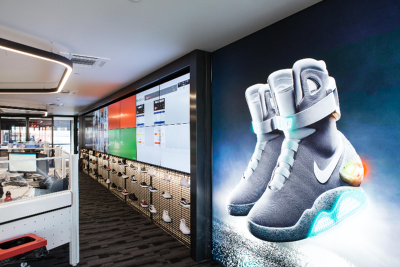 IRW: How has the retail industry evolved from your time working at Sanity through to now?
IRW: How has the retail industry evolved from your time working at Sanity through to now?
DA: Sanity was just a terrific business and there’s still some stores which I understand are still very good in the DVD business. But from the days of expanding Sanity to what’s going on here, is that essentially Accent Group is a business that is an extension of what Sanity used to be.
It’s all based around the four pillars being music, art, street culture and dance. They’re the four things we play on with the way our stores look and sound, and that’s what particularly Platypus and Hype is all about.
What’s changed is, the days of getting 10-20 per cent comp growth are long gone.
You have to be smarter in picking store locations, lease terms and negotiations and most importantly, inventory control, which is something that not many of us, 20 years ago particularly in the Sanity days, were focused on as much as we are today.
In the Sanity business, I had one and a half people in the planning department, today I’ve got 15. And that’s been a major shift in understanding how to manage a business a whole lot better. It’s got a lot to do with inventory control.
IRW: What are Accent’s expansion plans, locally and abroad?
DA: We’re still in expansion mode in Australia and into New Zealand, where we are still having major success, particularly in new stores.
We will probably open up to 20 stores this year within the group. We are investing heavily in our Athlete’s Foot brand too. So we are still very focused on Australia and New Zealand. In terms of international, we’ve down three trips now into Southeast Asia and it’s amazing to see those retailers that have gone before us are doing exceptionally well and learnt how to run those businesses with the exchange rates, banking issues and hiring of teams.
They’ve learnt it and we are a little bit behind but we’re certainly ready to at some point, open a store or look for some sort of partner in one of those countries in Southeast Asia, whether that’s Malaysia, Singapore or the Philippines, that’s sort of the wishlist. I’d be fairly disappointed if we didn’t have a store on the ground in the next 9-12 months.
IRW: Is diversifying into other sectors on the cards?
DA: In retail, there’s a lot of people for sale and it’s quite tough out there. What we’ve got is very strong backend systems, IT departments and most importantly, the know how of how to run a retail business.
So from our point of view we’ve had a lot of different approaches over the last two years but we are very focused on being footwear retailers at this stage. Whether we move into the heels market or something in the future, that’s a real option but certainly not on our priority list at this point.
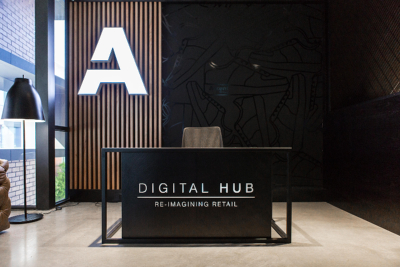 IRW: What instigated the Accent Group rebrand?
IRW: What instigated the Accent Group rebrand?
DA: Effectively, the Accent business was fairly big relative to RCG, which was a little bit disjointed, having offices in Melbourne, Sydney and Brisbane.
We had the space in Melbourne and the centre of gravity just became Melbourne, purely because of the facilities here and the office in general. We decided that the RCG name was more of a trading business rather than a retail, wholesale business and felt Accent was a little bit newer and more in line with what we do so decided to move most of the functions to Melbourne.
In Sydney, we have a big office in Waterloo, which we will maintain and certainly there will be some key executives that remain there.
IRW: Any upcoming initiatives?
DA: We have two main initiatives that are about to roll out. We have Australia’s biggest Skechers store, at 529 square metres opening at Homebush which has take over the old Rivers site.
We believe it will be our best store in the group – we already have a store at Homebush which is dynamic and this is now doubling in size. So very exciting times for the Skechers business. We also have roll outs for the Hype business which are very fresh. One will be at QVB and at the same time we will try one at Erina Fair in NSW. Very different and fresh in approach.
In June we will open a brand new concept for Platypus. We are a retailer that is still consistent with wanting to invest in our stores and I think that’s been very key to us.
Our core consumers expect us to look fresh, new and exciting otherwise they will go somewhere else. Overall it’s an exciting time and we need to make sure that we continuously innovate.


